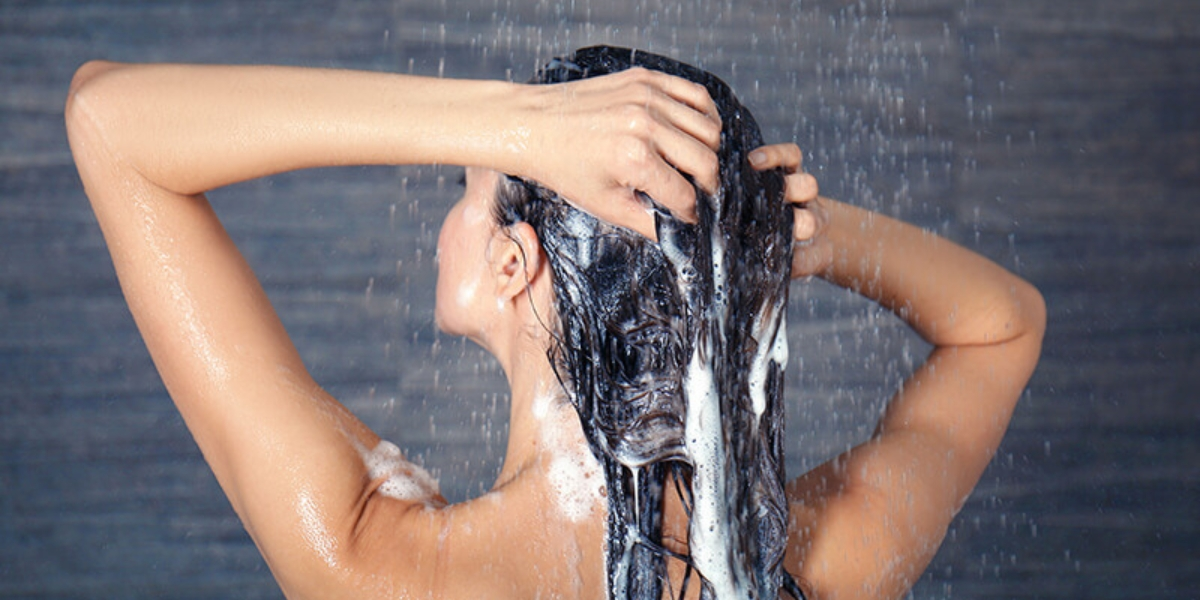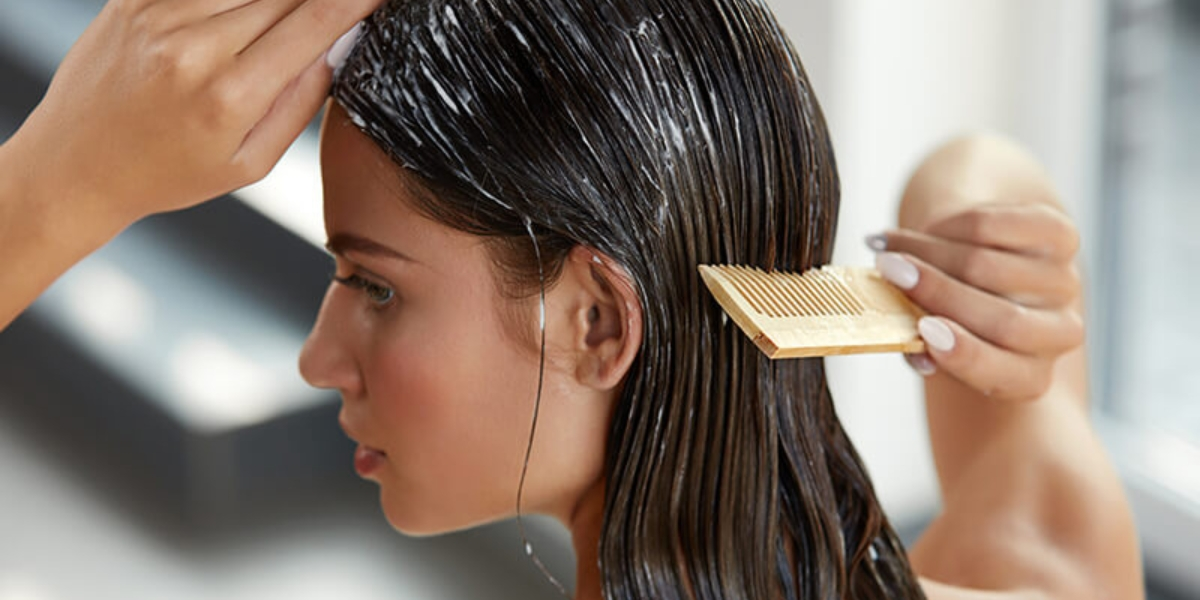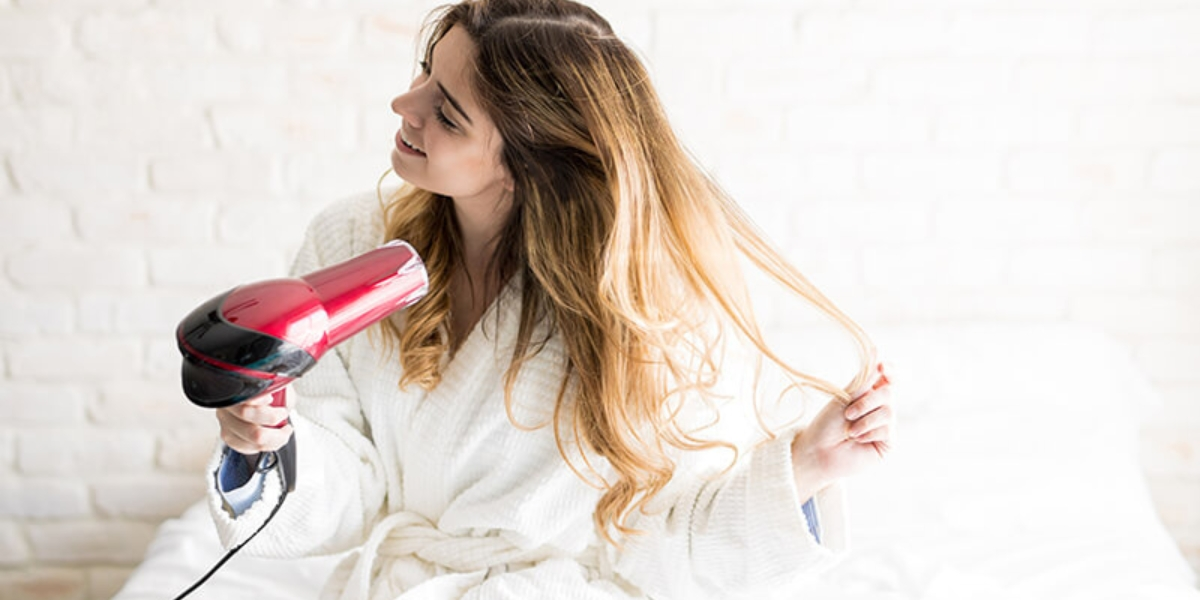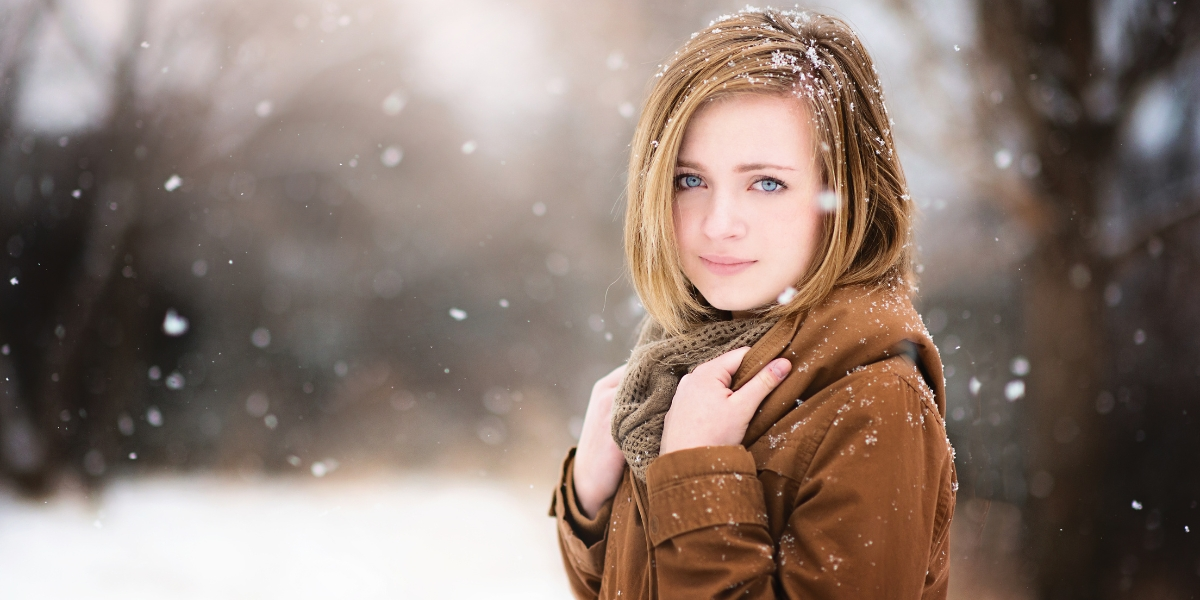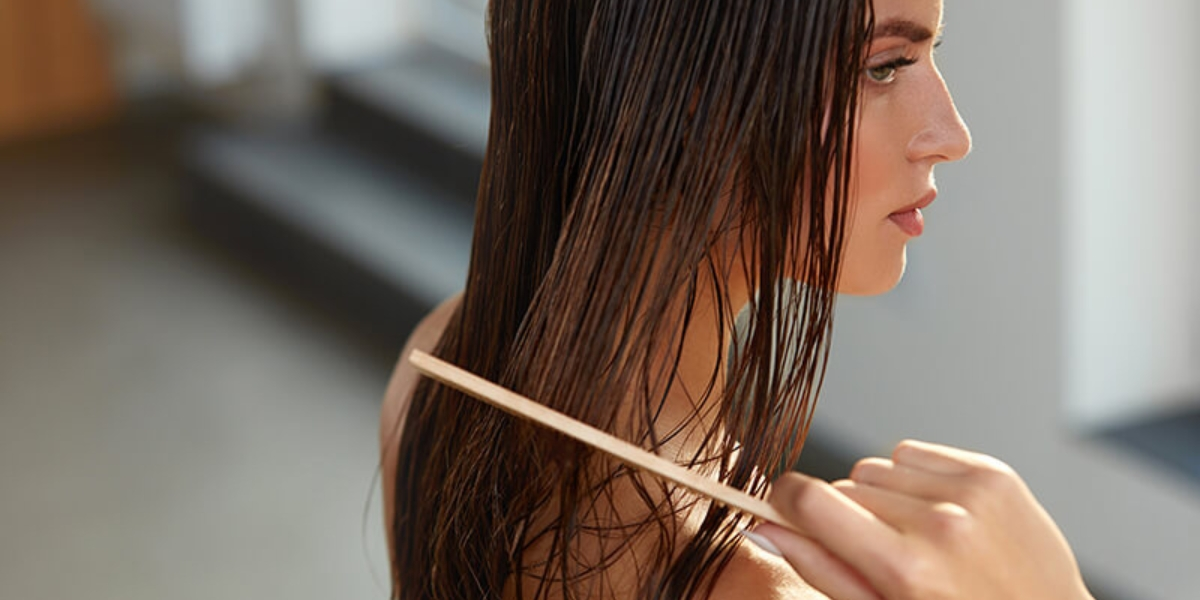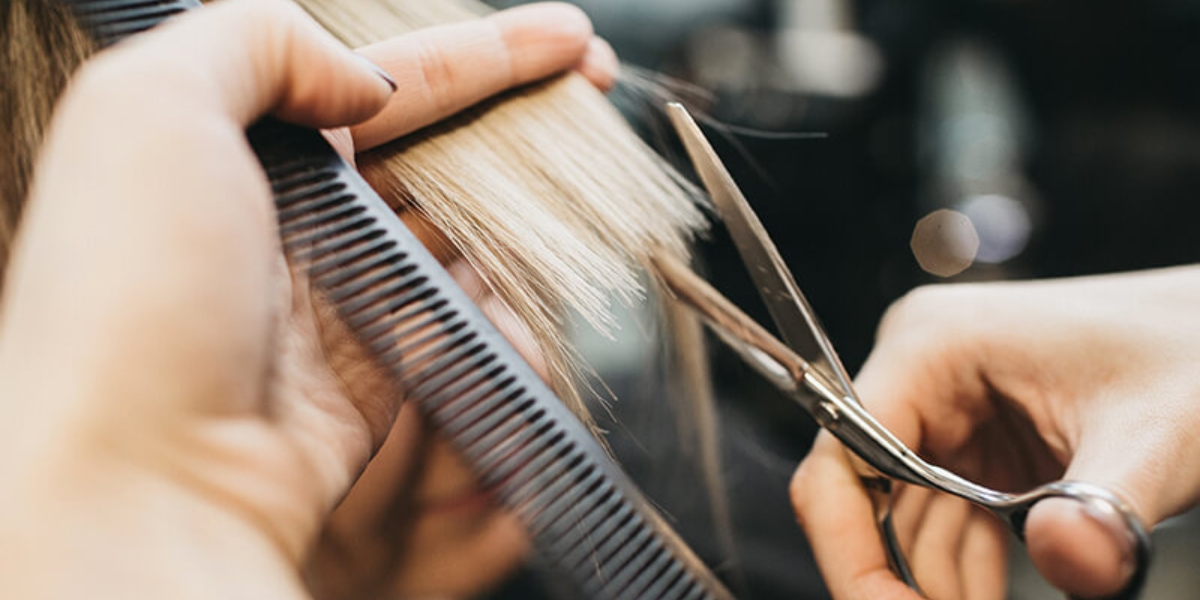Blog
Top 10 Winter Hair Care Tips for Smooth and Healthy Hair

Top 10 Winter Hair Care Tips for Smooth and Healthy Hair
Can you believe it’s that time of the year again? As you’re getting ready for the coldest months of the year, your routines may begin to change. Cups of hot chocolate are now part of your Saturday night routine; cracking fires, a book and blanket begin calling your name.
As temperatures drop and you begin to get all your wooly sweaters out, you’ll begin to notice your hair’s demanding attention and care.
Winter weather will inevitably mean slightly different hair care, so we’ve put together some winter hair care tips to help you overcome the harsh temperatures, and keep your locks fresh, healthy, and hydrated throughout the season!
As winter arrives, the change in weather can take a toll on your hair. Cold temperatures, low humidity and harsh winds can leave your locks dry, brittle and prone to damage. But don’t worry—by incorporating a few simple practices into your hair care routine, you can maintain smooth and healthy hair throughout the season. Here are the top 10 winter hair care tips that will help you keep your hair looking its best even in the coldest months.
10 Easy Winter Hair Care Tips
It’s often hard to notice how much of a positive effect a good dose of vitamin D has on our skin and hair until the sun goes into hibernation for the year. Along with the colder, harsher temperatures, unfortunately, comes split ends and dry skin – girls you will agree, it’s not a good look! This makes it more important than ever to give your hair just that little extra care, so you can keep it in amazing condition no matter the time of year!
1. Hydrate with Moisturizing Shampoos and Conditioners
There is nothing worse than greasy hair, but could you perhaps get away with leaving your hair just that extra day before washing?
We know that it is so easy to get into the routine of washing your hair every day, but it is actually incredibly unhealthy for both your hair and scalp. Your scalp is constantly producing sebum, which is the natural oil that keeps your scalp nourished.
Each time you wash your hair, you wash away the layer of oil which is keeping your hair and scalp hydrated, forcing it to overproduce oil to keep up with the constant washing. Washing your hair less actually trains your body to stop producing as much sebum meaning that your hair won’t greasy as quickly!
Ideally, your hair only needs to be washed every-other-day or even every third day if you can get into the routine of it. With a spritz of dry shampoo, you will get away with hiding the little bit of grease. For more insights into managing hair health and addressing related concerns like dandruff and hair loss, check out our article on these topics.
Why Hydration Matters
During winter, indoor heating and cold weather can strip moisture from your hair, making it dry and brittle. Using moisturizing shampoos and conditioners can help replenish lost moisture and keep your hair soft and manageable.
Look for products with ingredients like argan oil, shea butter, and hyaluronic acid. In Pakistan, consider brands like Head & Shoulders Smooth & Silky Shampoo, L’Oréal Paris Total Repair 5 Conditioner or Pro-Biotic Keratin Shampoo.
These products are designed to restore moisture and provide smoothness. For more tips on keeping your hair hydrated, check out our article on Vitamin C: Top Benefits, Sources & Supplements which highlights the role of hydration in overall health.
Recommended Products
In Pakistan, consider brands like Head & Shoulders Smooth & Silky Shampoo, L’Oréal Paris Total Repair 5 Conditioner or Pro-Biotic Keratin Shampoo. These products are designed to restore moisture and provide smoothness.
Fact: According to a study published in the Journal of Dermatology, using moisturizing hair products can improve hair hydration levels by up to 40%.
2. Avoid Hot Water While Washing
Although it can be so tempting to jump into a hot shower after the end of a long day and keep turning the temperature up just that little bit more, try your best to avoid steaming hot showers. You’ll be able to tell when your shower is way too hot because you’ll leave with your skin looking like a bright red tomato!
Just like your skin, water that is too hot will only strip away all of the natural oils in your hair and scalp. It means that you can do all of the intensive hair masks that you please, but you’ll just be washing away all of the hydration a day or so later.
Hot water will cause your hair to become brittle and your roots to grow weak, so try to keep your showers at an average temperature instead of super hot – it’ll still help you to warm up, just without causing any damage! For additional tips on maintaining hair health and benefits of natural remedies, like rose water, check out our guide on rose water for hair.
The Impact of Hot Water
Hot water can strip your hair of its natural oils, leading to dryness and frizz. Opt for lukewarm or cool water instead. This helps retain moisture and prevents your scalp from becoming too dry.
Practical Tips
When washing your hair, start with lukewarm water and rinse with cooler water to seal the cuticle and add shine.
Fact: Research in Dermatologic Therapy indicates that cooler water temperatures help in maintaining the natural oil balance of the scalp, reducing hair dryness.
3. Use a Deep Conditioning Treatment Weekly
During the Winter, your hair is stripped of all of its moisture due to a combination of manufactured indoor heat and the dry outdoor air. As the air is dry in the Winter, once it has evaporated all of the water in the atmosphere, it turns to your hair and skin to stay hydrated.
To ensure that your hair stays super silky with a healthy shine, we suggest trying to remember to schedule a weekly hair mask into your beauty regime. It’s your choice whether you opt for treating yourself to a high-end hair mask from brands such as Redken and Coco & Eve, or you get creative and make your own.
If you have hair extensions, you’re likely to benefit from researching a little more into what will work best with your hair extension type, you don’t want to use anything that will ruin the bonds and stop them from lasting as long. For example, a lot of our lovely clients go for Keratin hair extensions in Ampthill, so for these, we’d suggest going for masks from brands like Kérastase.
Making your own hair masks is quick and easy, and allows you to tailor your ingredients to meet your hair type. Some of the most common ingredients include things such as honey, banana and coconut oil.
Benefits of Deep Conditioning
Deep conditioning treatments provide intense moisture and repair for your hair. They are especially beneficial during winter when your hair is more susceptible to damage.
Recommended Treatments
Try Dove Intense Repair Deep Treatment Mask or The Body Shop Banana Truly Nourishing Hair Mask. Apply once a week for best results.
Fact: A study in the International Journal of Trichology found that weekly deep conditioning can improve hair strength and reduce breakage by up to 25%.
4. Limit Heat Styling
Drying your hair can be a mission, especially on those cold mornings when all you want to do is catch that extra 15 minutes snuggled in bed, but if you want your hair to stay in tip-top condition, it’s important to make sure that it’s thoroughly dried before stepping outside.
Leaving your hair to dry naturally is often thought to be better for its health. While this is true, it is only beneficial if you are in warm or room temperature air. Going into the cold when your hair is still damp will cause the cuticle to expand, which not only makes you more prone to breakages, but can also make your color fade so much quicker.
Why Heat Styling is Harmful
Frequent use of heat styling tools like blow dryers, straighteners, and curling irons can weaken your hair, making it more prone to damage and split ends.
Tips for Reducing Heat Use
Air Dry: Whenever possible, let your hair air dry.
Lower Heat Settings: If you must use heat styling tools, use the lowest effective temperature.
Fact: According to the American Academy of Dermatology, limiting heat styling can reduce hair damage and breakage by up to 30%.
5. Protect Your Hair from the Cold
The Importance of Protection
Cold weather can lead to hair breakage and split ends. Protecting your hair from harsh winter elements can help maintain its health.
Protective Measures
Wear a Hat: Choose a hat made from breathable materials to protect your hair from the cold.
Silk or Satin Pillowcases: Use silk or satin pillowcases to reduce friction and prevent breakage while you sleep.
Fact: Research from the Journal of Cosmetic Dermatology shows that protective measures like wearing hats and using silk pillowcases can decrease hair breakage by 40%.
6.Cut Down On Color
So this tip may not be for everyone, but if you’re looking to switch up your hair color, why not consider going darker for Winter? By using coloring products you’re exposing your hair to harsh chemicals that lead to additional dryness in the winter months. If possible, take a break from using harsh coloring or bleaching products in peak winter months to decrease the chances of breakage.
By darker, don’t worry, we don’t necessarily mean switching from an icy platinum blonde to a gorgeous chocolate brown (unless you’re feeling brave, we salute you!) but instead, warming up your current tone to avoid harsh bleaching over the colder months. Choosing to let your roots become darker over the Winter will help them to stay strong and filled with hydration.
It stops you having to constantly use toners each time you wash your hair which will strip away your oils and dry out your follicles. Allowing your hair to have a break from dye will also contribute towards better results when you eventually do come to coloring again, allowing to brighten up your hair just in time for the sun to shine.
7. Stay Hydrated
The Role of Water in Hair Health
Adequate hydration is essential for maintaining hair moisture. Drinking enough water helps keep your hair hydrated from the inside out.
Hydration Tips
Drink Water: Aim for at least 8 glasses of water daily.
Eat Water-Rich Foods: Incorporate fruits like oranges and cucumbers into your diet.
Fact: Research from the Journal of Nutrition suggests that proper hydration can improve hair moisture levels and reduce dryness.
8. Avoid Over-Washing Your Hair
Why Less is More
Washing your hair too frequently can strip it of its natural oils, leading to dryness and irritation.
Recommended Washing Frequency
Frequency: Wash your hair 2-3 times a week to maintain natural oil balance.
Mild Shampoo: Use a mild, sulfate-free shampoo to avoid excessive dryness.
Fact: Studies show that reducing shampoo frequency can lower scalp dryness and irritation by up to 50%. source (https://www.sciencedirect.com/).
9. Use Leave-In Conditioners and Hair Oils
Using a leave-in conditioner is perfect for us girls who are always on the move and struggle to find time to do a hair mask. Leave-in conditioner comes in so many different forms from a spray to cream, so it might take some trial and error to find what works best for you. It helps to provide the hair with extra hydration and will also make it ten times easier for you to de-tangle your hair after washing.
It is always best to gently towel-dry your hair before applying a leave-in conditioner and once applied, comb through using a wide-tooth comb; this will help to make sure that all of the product is evenly distributed around the hair. Now you’re ready to get styling!
Benefits of Leave-In Products
Leave-in conditioners and hair oils provide extra moisture and protection against environmental damage. They are perfect for maintaining smooth and healthy hair during winter.
Recommended Products
Leave-In Conditioners: L’Oréal Paris Elvive Total Repair 5 Leave-In Conditioner.
Hair Oils: Moroccanoil Treatment Light.
Fact: According to a study in the Journal of Cosmetic Science, leave-in conditioners can improve hair hydration and manageability by up to 35%.
10. Regular Trimming
We’ve all been guilty of leaving it way too long before booking a quick trim of the split ends because we’ve finally got our hair to the lengths we’ve been dreaming of! But, as much as we hate to break it to you, it’s probably just about one of the worst things you can do to your hair!
Split ends don’t go away by themselves, no matter how many hair masks you do and how much you care for your hair; there’s no way of fusing them back together. Instead, the longer you leave them, the more they will travel up your hair strands, and they’ll eventually split into multiple split ends causing what looks like a feathered effect.
To avoid a build-up of split ends, we suggest booking in with your favorite, trusty hairdresser every six weeks or so to keep on top of hair maintenance. You could even time your haircuts perfectly with any special occasions you have and treat yourself to a bouncy blow dry while you’re there!
Why Trimming is Important
Regular trims help remove split ends and prevent further damage, keeping your hair looking healthy and vibrant.
Trimming Schedule
Frequency: Aim for a trim every 6-8 weeks.
Professional Help: Visit a professional stylist for the best results.
Fact: Regular trims can reduce split ends and breakage by up to 20%.
What are some healthy hair tips for men in the winter season?
Men often believe that they don’t need to take real care of their hair and scalp. It’s only when things start going wrong, that the worry increases, and frantic questions are asked to women on how to take care of their hair in winter.
And although you can use the same methods that women do, it’s important to understand that men’s hair care is slightly different and requires its own approach.
What are some common issues faced in the winter?
Any seasonal change brings its own set of challenges and troubles, which is especially relevant for your hair. When trying to figure out how to take care of hair men need to look at the usual suspects first:
1. Dry scalp
This is the most common ailment that befalls men during the winters. Your scalp can dry out and become vulnerable to the external elements.
2. Split ends and frizzing
A dry scalp also leads to dry hair, when your strands cannot get the necessary oil or sebum to protect it. This leads to split ends and slight frizzing, which usually happens to longer hair.
3. Flaking
When your scalp dries out, it leads to cracked skin that can start to flake. These are dead skin cells which are falling away and are also associated with irritants that your scalp is trying to get rid of.
4. Dandruff
Although it affects only half of the world, dandruff might affect you in the winter. Dryness can trigger excessive oil secretion on the scalp, which is ideal ground for dandruff.
5. Static hair
The cold weather can create an electrical charge in your hair, giving it that annoying static nature. This often occurs while wearing knitted caps or beanies.
6. Hair breakage
Because your hair is dry, it has a tendency of becoming weak and brittle. This makes it prone to damage and breakage.
How to take care of hair in winter?
Healthy hair for men is easily achievable, even in the winter season. You just need to make a few adjustments in your routine and you’ll be able to avoid most problems.
1. Oil
It might not be fashionable to oil your hair, but it could solve a lot of your problems in the winter months. This can boost blood circulation to the scalp and close the cuticle layer of your hair strand. Use oils such as coconut, jojoba, argan or almond.
2. Wash adequately
It’s important to wash your hair regularly with the right kind of shampoos. Using shampoo men’s hair 2-3 times a week is the general rule of thumb.
3. Hot showers
Nobody is telling you to have a cold shower, but you should avoid high water temperatures. When thinking about how to take care of hair, men should use lukewarm water during the winter months.
4. Drying your hair
You might be tempted to step out of the shower, quickly dry your hair, and then move on with your day. Wet hair is fragile and can be harmed easily, leading to split ends. Be gentle with the towel and allow your hair to air dry slightly.
5. Gels and wax
Avoid these during the winter season. Some of these products contain chemicals that can dry out your hair and open up your scalp to external irritants. These can also lead to brittle hair and breakage.
6. Wet hair and combs
Never leave your house with wet hair and make sure you don’t comb it wet either.
7. Conditioners
Healthy hair for men requires conditioning. This can reduce static, infuse moisture, and bring back shine to the hair.
8. Caps and hats
Be careful with what you put on your head. Covering your hair is great during the winter as it can protect from the sun while preventing excessive moisture loss. But these can also create static and pull on your hair strands. Choose the right material and ensure that it isn’t too tight.
9. Trims
It’s necessary to trim your hair regularly, not just for the style quotient, but as a method on how to care for hair in winter. These can get rid of any split ends and reduce moisture loss.
10. Diet
You’ve probably heard this before, but diet can have a big impact on your hair in the winter. Increase water consumption, while curbing your sugar, junk and caffeine. You need to have a diet that gives you minerals, proteins, fatty acids, zinc, iron and vitamins.
6 Tips to Get Stronger and Thicker Hair at Home
Is your hair tangled in an eternal love affair with your hairbrush? Managing your tresses can be a tiring task, especially, without professional help! But the right mix of hair care and dietary tips can get you the gorgeous hair you always wanted.
Here are 6 tips for healthy hair growth:
1) Cleansing care for better scalp health
Cleansing hair is the base of your hair-care routine. The first step towards a successful cleansing routine is identifying your hair type. If your scalp gets oily and your hair feels greasy, chances are you having an oily scalp.
While the market is flooded with high-rated cleansers, here is a DIY natural hair cleanser you can try at home for hair growth -Take 2-3 tablespoons of apple cider vinegar and mix it with 1 ½ cup of water.
Pour the mixture into a spray bottle and evenly spray it onto your scalp. Massage gently with fingers and let it rest for 5 minutes. Wash it out with plain, cold water and pat dry. ACV helps treat dandruff and lower pH to restore hair health.
2) Sunscreen protection for healthy hair
The sun can damage your hair and make it brittle! With offices and restaurants reopening, stepping out in the mornings is making a comeback.
But this time, we will be prepared to protect our hair from sun damage. The outside heat and pollution can cause irreparable damages to your otherwise healthy hair. Sun damage can be spotted as discoloration, brittleness, split ends, thinning and frizziness.
A hair sunscreen serum with essential oils can protect your hair from UV damage and also nourish your hair cuticles in the process. Not to miss the soothing scent of a light serum that can fight off the sweaty musk.
Here’s a pro tip: Remember to apply the hair sunscreen serum at least 30 minutes before stepping out in the sun.
3) DIY hair growth masks for better nourishment
Hair growth tips at home are incomplete without DIY hair masks! Here are two of our favorite DIY picks for promoting hair growth:
Banana Hair Mask
Bananas are healthy for your body and your hair, even when you make hair masks with them! The banana hair mask works well for repairing and rejuvenating damaged hair.
- To make the DIY banana hair mask, take a ripe banana, 4 tablespoons of coconut oil, 1 tablespoon of glycerin and 2 tablespoons of honey.
- Blend to make a smooth paste and apply it to your hair.
- Cover your hair with a shower cap after application and rinse off with water after 30 minutes.
Flaxseed Hair Mask
Flaxseeds are superfoods, rich in omega-3 fatty acids, protein and antioxidants. Needless to say, flaxseed, when used correctly, can help restore your hair growth naturally. It also nourishes your hair by binding the moisture and reducing dryness, frizziness and split ends.
- Take ¼ cup of flaxseed and add 2 1/2 cups of water to it.
- Boil this over medium flame for 7 minutes, stirring the flaxseeds occasionally, till they start having a runny gel-like consistency.
- Allow this flaxseed gel to rest for 45 minutes off the heat. The gel will now thicken and look similar to aloe vera gel.
- Take a thin straining cloth and squeeze the gel through it into a clean bowl. Once you have enough flaxseed gel in the bowl, add a few drops of tea tree or lavender essential oil to it (optional). Apply this on the hair and leave it for an hour. Wash it off with cold water. You can also store this mixture in a glass bottle or jar in the refrigerator to use weekly.
4) Supplements for hair growth
Biotin hair supplements are the go-to for hair growth and can boost hair growth naturally! Hair supplements like these biotin mint strips are also infused with the goodness of Vitamin B12 for nourishing hair follicles with nutrients and oxygen for healthy hair growth. With the right supplements, ample hydration and proper diet, gorgeous locks are just one selfie away!
5) Better diet for better hair health
A balanced diet rich in vitamins and minerals is crucial for healthy hair. During winter, focus on foods that support hair health. Not even the best hair care products can give you luscious, healthy hair if you don’t eat right. While outside care and nutrition are significant determinants for healthy hair, it’s also important to nourish them from the inside!
Foods loaded with iron, zinc, vitamin C, B vitamins, and omega-3 are linked to healthier and longer hair. Add food items like chicken, walnuts, egg yolk, soybeans, oranges, papaya, carrots, sweet potato, and lettuce to your diet for naturally healthy hair. Moreover add below mentioned eatables in your diet plan:
Leafy Greens: Spinach and kale are high in vitamins A and C.
Nuts and Seeds: Almonds and flax seeds provide essential fatty acids.
Fish: Salmon and mackerel are rich in omega-3 fatty acids.
Fact: A study in Nutrients highlights that a diet rich in omega-3 fatty acids and vitamins can improve hair health and reduce hair loss.
6) Switch to wooden combs
So, this one is simple and needs the least effort! It’s not a myth that wooden combs are better than your average plastic combs. The plastic bristles create static electricity upon coming in contact with your hair, resulting in breakage.
Instead, take a wide-toothed wooden comb and start by brushing the ends first and then combing with long strokes from the roots. This simple technique helps distribute the natural oils evenly and also prevent hair breakage.
This article was written by Zahra Latif, who specializes in beauty and hair care tips.
What are the best products for winter hair care?
The best products include moisturizing shampoos and conditioners, deep conditioning masks, and leave-in conditioners. Look for products with hydrating ingredients like argan oil and shea butter.
How often should I wash my hair in winter?
Washing your hair 2-3 times a week is generally sufficient to maintain its natural oil balance and prevent dryness.
Can heat styling damage my hair in winter?
Yes, excessive heat styling can damage your hair, making it more prone to breakage. Try to limit the use of heat styling tools or use them on the lowest setting.
How can I protect my hair from the cold weather?
Wear a hat made from breathable materials and use silk or satin pillowcases to protect your hair from cold weather and reduce friction.
What foods are good for hair health in winter?
Foods rich in omega-3 fatty acids, vitamins A and C, and proteins are excellent for hair health. Incorporate leafy greens, nuts, seeds, and fatty fish into your diet.
Can I use hot water to wash my hair in winter?
It’s best to avoid hot water, as it can strip your hair of its natural oils. Use lukewarm or cool water instead.
How often should I trim my hair in winter?
Aim for a trim every 6-8 weeks to remove split ends and prevent further damage.

